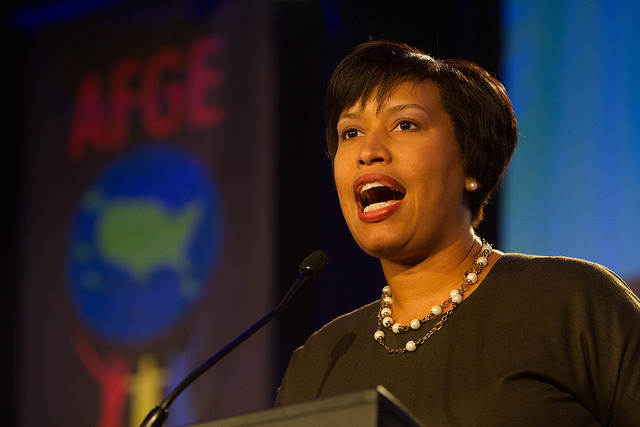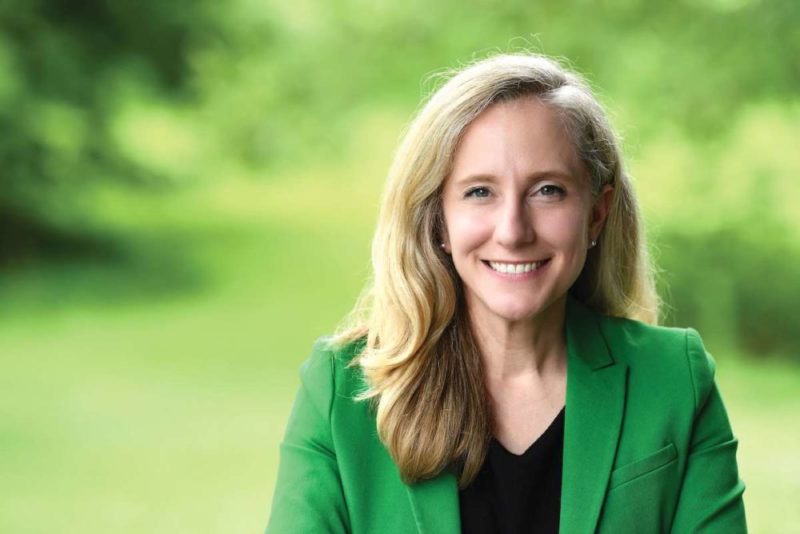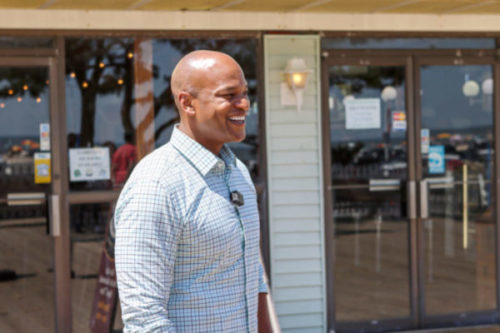And while many of these leaders campaigned on such hot-button issues as the tipped minimum wage and gun violence, tech, entrepreneurship and economic support all certainly remain on the table of priorities. So how do local leaders feel about tech? And what has their track record looked like so far? We’ve got it for you below:
Maryland Governor-Elect Wes Moore
Wes Moore, whose win last night will make him the state’s first Black governor, isn’t exactly a stranger to the tech and entrepreneurship world. He founded BridgeEdU, a company designed to help high school students succeed in college, back in 2014.
While the company raised $3.1 million in seed funds and served nearly 700 students, it was sold for data five years later and shut down. But that was not the end of Moore’s entrepreneurial ambitions: His campaign platform includes several measures to drive Maryland’s workforce and STEM growth.
Here are some of his main priorities as governor:
- Prioritize talent recruitment by attracting remote workers to the state
- Recruit new industries and support small businesses by removing regulations, modernizing the regulatory process and increasing capital for these entrepreneurs
- Add new short-term credential programs, boost apprenticeship funding and increase investments in STEM education
- During his first term, Moore aspires to add 150,000 new STEM graduates. He also wants to make Maryland the “Capital of Quantum” by partnering with businesses and entrepreneurs
- Create a talent recruitment function within the state’s Department of Commerce and add incentives for remote workers
- Grow relationships with the state’s federal agencies, military institutions, colleges and universities
- Implement a comprehensive paid family and medical leave program, increase federal transportation funds and raise the minimum wage to $15 per hour by 2023
DC Mayor Muriel Bowser

Mayor Bowser at a speaking engagement. (Photo by Flickr user AFGE, used under a Creative Commons license)
She’s not quite the mayor for life, but Mayor Muriel Bowser has a storied history with tech in the district. Her successful third-term reelection campaigning didn’t dive too deep into her plans for tech and entrepreneurship in the city, especially since she’s having her cabinet “re-audition” come January, but she had plenty of initiatives related to these worlds.
Bowser first took office in 2015. Our first mention of her was in February of that year when she had to cut $100,000+ to DC’s SXSW initiative, called WeDC — a move that prompted much disappointment from DC technologists. But she quickly shifted gears by taking a more hands-on approach to growing the district’s tech scene, appointing Matt Bailey as the first director of technology innovation and announcing many new tech events in May.
But that was eight years ago. Here’s the rapid-fire recap of Bowser’s tech initiatives:
- 2016: A big year for Bowser. She nominated Archana Vemulapalli to the new role of DC CTO; launched the Council of Global City CIOs with San Francisco Mayor Ed Lee; gave edtech giant Blackboard $1 million to keep it in DC; launched the city-backed Luma Lab outpost at Howard University, and set a goal for DC to be the top city for inclusive innovation.
- 2017: A little less busy. Bowser hosted the third annual InnoMAYtion event celebrating entrepreneurship in DC and launched the Inclusive Innovation Incubator at Howard.
- 2018: This year, she returned to her office roots and launched the WeDC Fest (apparently slightly different from WeDC). Bowser and the Office of the CTO (OCTO) also opened the Gigabit DC Challenge for gigabit app solutions to traffic and climate issues. DC government and Uber also launched an in-app 911 feature, while the district organized a West Coast trip to recruit tech firms.
- 2019: Following the Gigabit DC Challenge’s success, DC and OCTO launched another competition known as the DCx Challenge. Bowser also awarded community-driven accelerator and nonprofit Street Entrepreneurs with $175,000.
- 2020: I don’t need to tell you what happened this year. Bowser announced a $25 million recovery fund for small businesses in DC impacted by COVID-19 but threatened to cut digital equity initiatives. Through the $3.3 million Internet for All initiative, the district provided free internet access to 25,000 households for the 2020-2021 school year. DC also opened its own $1,200 stimulus check program in December.
- 2021: Bowser, the Deputy Mayor for Planning and Economic Development and 1863 Ventures created the $1.25 million Inclusive Innovation Equity Impact fund.
- 2022: DC launched the Community Internet Program to provide affordable broadband. Plus, Bowser’s Fair Shot budget created three innovation districts, including one for transportation and mobility.
Virginia U.S. House Representative Abigail Spanberger

Abigail Spanberger. (Courtesy photo).
Incumbent Democrat Rep. Abigail Spanberger represents constituents in Fredericksburg, Prince William County, Spotsylvania, Stafford, King George, Caroline, Orange and Culpeper counties on Capitol Hill. Since entering public office in 2018, she has voted in favor of several tech and broadband-related initiatives.
During her tenure, Spanberger has:
- Voted in favor of the Infrastructure Investment and Jobs Act for broadband funding
- Hosted broadband summits in her constituency’s rural communities to connect officials with residents
- Announced a $28 million project with the Central Virginia Electric Cooperative for broadband initiatives in Virginia counties
- Introduced bills to update the Federal Communications Commission’s broadband maps and pushed to expand Wifi hotspots
- Supports unions, something that tech has been taking a closer look at recently
- Voted for the CHIPS and Science Act and the American Rescue Plan, which brought Virginia $700 million to put toward broadband
Join our growing Slack community
Join 5,000 tech professionals and entrepreneurs in our community Slack today!
Donate to the Journalism Fund
Your support powers our independent journalism. Unlike most business-media outlets, we don’t have a paywall. Instead, we count on your personal and organizational contributions.

Mayor Bowser: Tech can help DC build a stronger, more self-sufficient economy

Comcast introduces ultra-low lag Xfinity internet that boosts experiences with Meta, NVIDIA and Valve

Maryland firms score $5M to manufacture everything from soup to nanofiber



